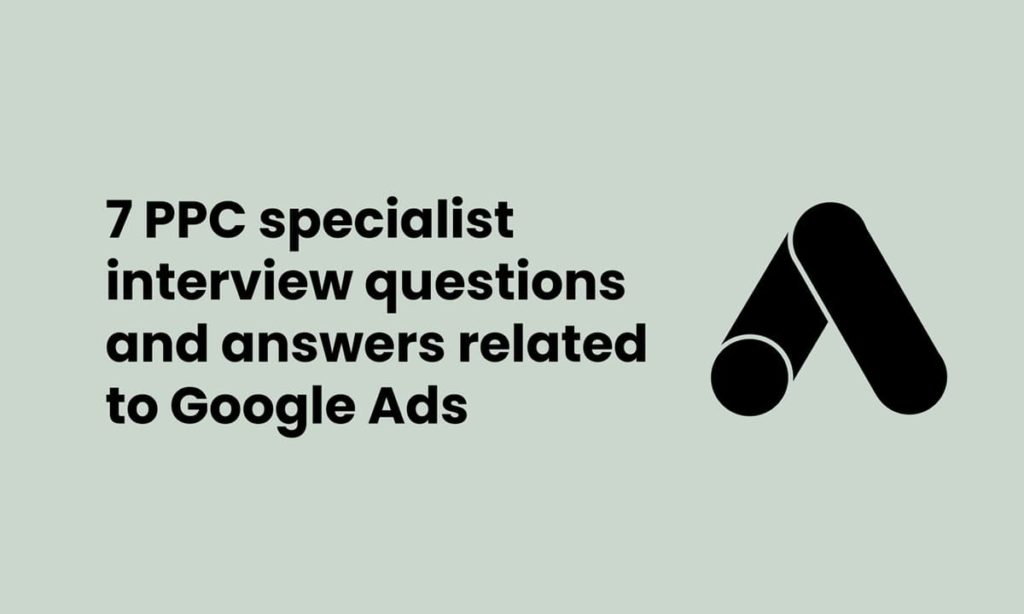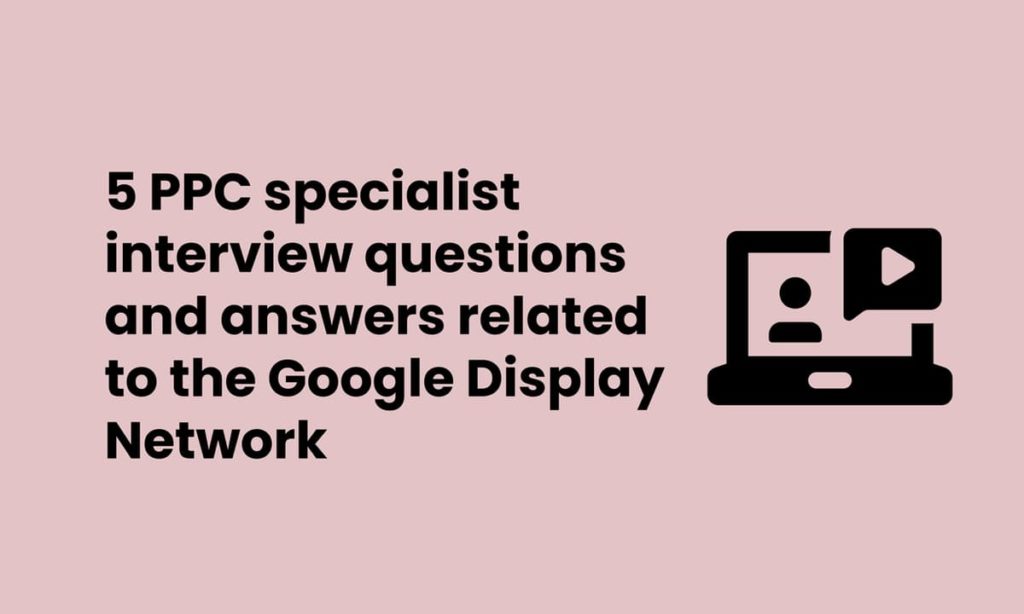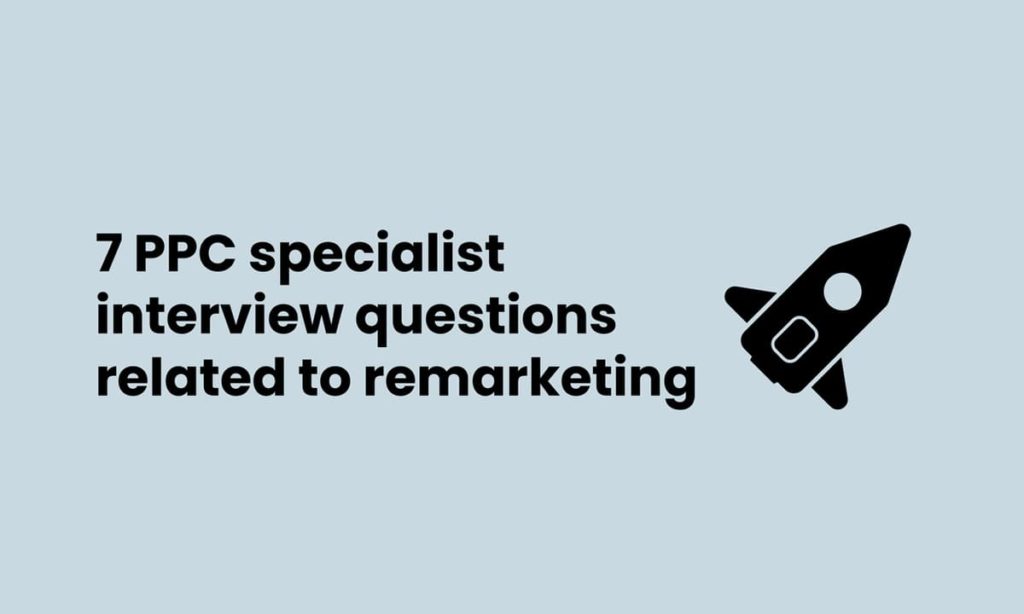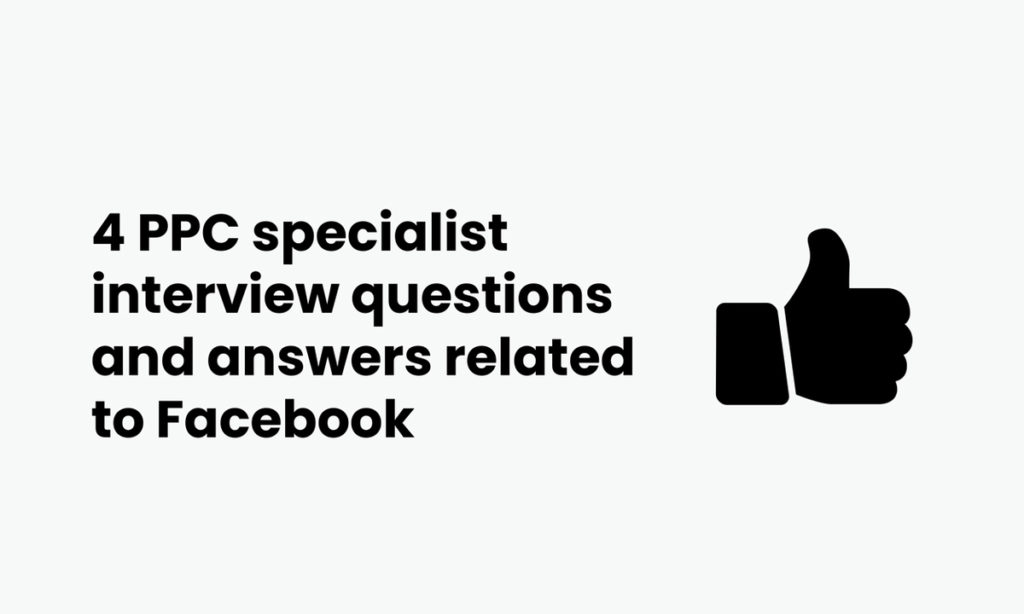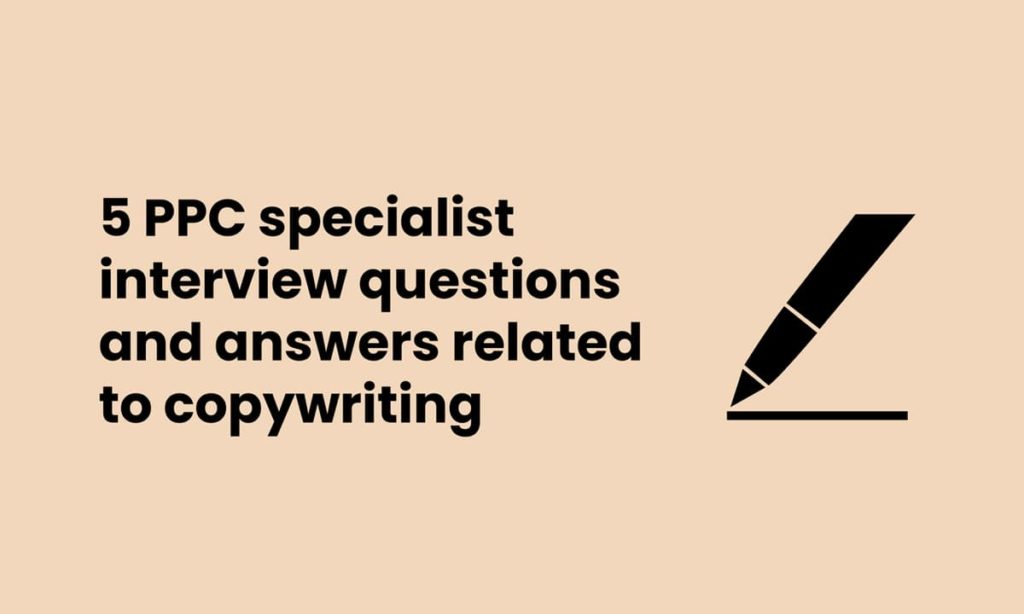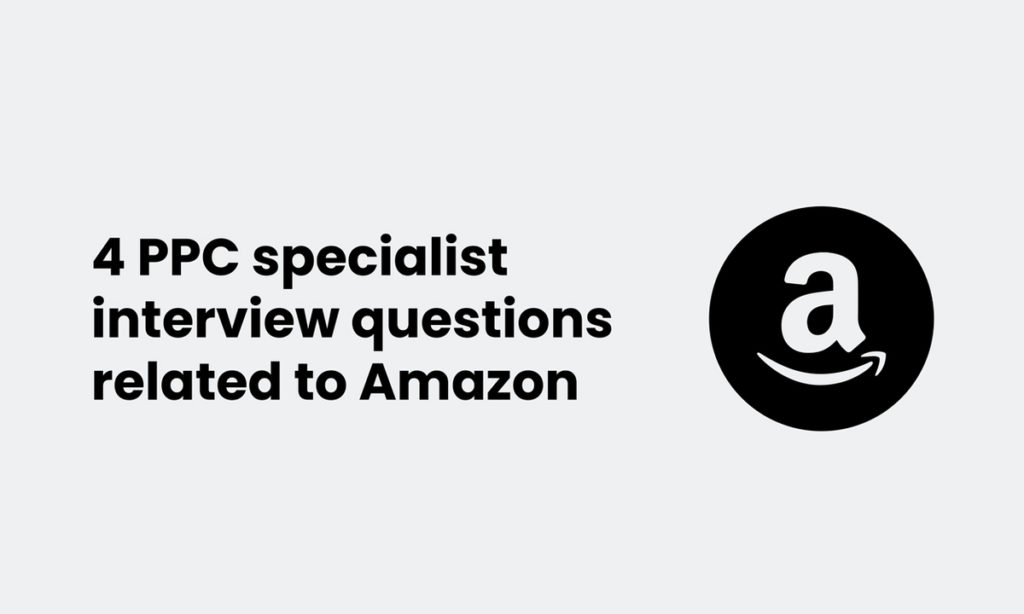32 PPC specialist interview questions to hire a professional
Pay-per-click marketing is a powerful tool that might require recruiting an expert if you aim to get it right.
If you’re wondering how to find and hire the right expert to handle your PPC advertising, there are two key steps to consider.
Once you have sourced candidates, you need to use skills assessments to evaluate their PPC advertising skills accurately.
After that, you should follow this up with an interview to gain a deeper understanding of their expertise – and for this, you need the right PPC specialist interview questions. This way, hiring the right person will be easier.
With this article, our goal is to help you with the second part: the interview. Below, you’ll find a selection of 32 PPC specialist interview questions to ask your candidates and find the perfect match.
Table of contents
- 7 PPC specialist interview questions and answers related to Google Ads
- 5 PPC specialist interview questions and answers related to the Google Display Network
- 7 PPC specialist interview questions related to remarketing
- 4 PPC specialist interview questions and answers related to Facebook
- 5 PPC specialist interview questions and answers related to copywriting
- 4 PPC specialist interview questions related to Amazon
- When in the hiring process should PPC interview questions be used?
- Use PPC specialist interview questions to hire the perfect match
7 PPC specialist interview questions and answers related to Google Ads
This section contains seven PPC specialist interview questions related to Google Ads. Find out how confident your candidates are when using this tool by asking them these questions.
1. Explain what the Google Ads auction is and how it works.
When an advert is eligible to show up in a search, it enters into the Google Ads auction. Through this auction, Google determines whether the ad can show for a particular search and in which position it’ll be displayed.
The Google Ad auction works like this:
First, the system locates the adverts for which the search keywords match
Google then filters out ineligible ads that do not match the requirements for ad quality or search intent
If the bid, quality of the ad, and the user’s search intent are good enough, this ad will be displayed
2. What is the relationship between an ad’s rank and CPC?
For CPC (Cost-per-click), the highest amount an advertiser will be charged is the equivalent of the smallest amount needed to maintain the position of their ad. It’s also important to recognize that higher CPCs are usually linked to ads that appear above the results of the search.
3. Explain what CTR means.
CTR is short for click-through rate, or the ratio between the number of people who see an ad and those who click on it.
4. How is CTR calculated?
To work out the click-through rate, divide the total number of clicks by the ad’s impressions.
5. How do you enhance the Google Quality Score of an ad?
There are a few factors that determine Google’s Quality Score of an ad, including the keyword and the ad text. For advertisers to maintain a high score, they should use fewer keywords and write targeted copy, which requires focusing on targeted ad groups.
6. What is the advantage of the Google API, and who should use it?
One of the main advantages of the Google API is that it provides advertisers with many tools, such as custom reports, automated account management, and the option to manage strategies for smart bidding. However, it’s recommended that only experts who have software engineering experience and have a solid understanding of the Google API should use it.
7. What are the tools you use for keyword discovery?
Candidates may mention several keyword tools for research beyond Google, including SEMrush, SurferSEO, Ahrefs, and SpyFu. Even if they are not knowledgeable of the tool that your organization uses, they should understand the basics of keyword research and show that they are motivated to learn.
5 PPC specialist interview questions and answers related to the Google Display Network
Below, you’ll find five PPC specialist interview questions you should ask your candidates to learn how skilled they are with Google Display Network campaigns.
1. Should Display Network campaigns be separated from Search Network campaigns?
According to Google, using separate campaign settings for each network is a more effective strategy, which is why Display Network campaigns should be separated from Search Network campaigns. However, the results of this can be different for each campaign.
2. Explain what the OSI is.
OSI is short for on-schedule indicator. It represents the chance (as a percentage) that an advertiser’s campaign will gain the total number of impressions they book, where an impression refers to the number of times an ad appears on Google.
3. How much time should pass before you analyze a new Display Network campaign’s performance?
Google recommends that an advertiser should wait for between two and three weeks before they analyze the performance of a new Display Network campaign.
4. What are managed placements?
Managed placements enable advertisers to bid in a different way, particularly for specific displays on the Google Display Network. They allow you to select the particular sites on which your ad will be placed.
5. What are the advantages of managed placements?
One of the biggest advantages of managed placements is that you can select particular domains that are relevant to your audience. This helps increase the number of clicks and conversions.
The best insights on HR and recruitment, delivered to your inbox.
Biweekly updates. No spam. Unsubscribe any time.
7 PPC specialist interview questions related to remarketing
Here are seven PPC specialist interview questions related to remarketing. Use them to learn whether your candidates are familiar with some of the critical factors of retargeting.
1. Name three advantages of remarketing.
Candidates should know how remarketing can benefit your organization. Three of its critical advantages are that remarketing:
Helps advertisers target users in the moment they are going to purchase
Create ads effortlessly, including text and video ads
Reach a broad audience on various devices
2. How can you find out if a website can cope with tracking requirements for a remarketing campaign?
To ensure a website can cope with tracking requirements, ensure that it can support the pixels and codes required for the remarketing campaign. Make sure that the remarketing pixel has been installed correctly on the website and remember to test it.
3. Which KPIs would you use to assess the success of a remarketing campaign?
Some of the most important KPIs that advertisers should use to assess a remarketing campaign’s success include:
Click-through rate
Cost per click
Return on investment
Cost per acquisition
4. Explain what site remarketing is.
Remarketing is also known as retargeting. It’s a process that involves serving an ad and displaying it to users who may have visited the advertiser’s website already. It involves customizing ads campaigns and tailoring them to browsing customers.
5. What are Remarketing Lists for Search Ads (RLSA)?
Remarketing Lists for Search Ads involve using Google analytics to establish the decisive factors for adding customers to a list. Advertisers can then link the list to the search ad group.
6. Explain what email remarketing is.
Email remarketing or retargeting is a type of email marketing strategy that helps advertisers display an email ad to a user who may have been interested in a product but did not take action (despite a call to action). It works by monitoring the audience’s behaviors with the help of cookies.
7. Explain what social media remarketing is.
Retargeting via social media involves converting a customer who might not have been ready to purchase the first time they visited a website. Some social media remarketing methods include:
Focusing on specific audiences
Making advertisements that are eye-catching and have clear CTAs
Tracking remarketing efforts
Timing a campaign
4 PPC specialist interview questions and answers related to Facebook
The following PPC specialist interview questions will help you evaluate your candidates’ PPC Facebook knowledge.
1. Explain what Facebook PPC is.
Facebook PPC is a type of advertising on Facebook. Organizations and advertisers will pay the platform when a user clicks on their ad.
2. Name two types of Facebook budgets for PPC.
The two main types of budgets that you can choose from on Facebook include lifetime budgets and daily budgets.
A lifetime budget is an amount that advertisers wish to spend during the whole duration of their campaign. A daily budget is an amount that advertisers wish to spend each day on their campaign.
3. Which factors can lead to low impressions on Facebook ads?
There are three main factors that can lead to low impressions on a Facebook ad:
The advertiser’s budget may be too low
The ad may be displayed to the same customers repeatedly
There is not enough targeting, and there is some overlap between target audiences
4. Name three advantages of Facebook PPC.
Three important advantages of Facebook PPC include:
Advertisers can reach a vast global audience who may not have known their organization before
Advertisers can use retargeting campaign strategies to convert customers who may have been interested in their product or service before
Advertisers can focus on a particular audience based on their location, gender, and interests
5 PPC specialist interview questions and answers related to copywriting
Use the five PPC specialist interview questions below to assess your candidates’ knowledge and understanding of the principles of copywriting and how they relate to PPC advertising.
1. Which factors are important when writing an ad?
There are several factors that are critical when writing a PPC ad, including:
Using the second person and directly addressing the audience
Using calls to action to encourage customers to take action on the ad
Using PPC and SEO data to target an audience with a specific strategy
2. Which processes are important when testing a written ad?
Candidates should recognize the importance of testing ads and know that there are a few processes that they need to focus on, including:
Testing CTAs
Testing the pricing
Testing the punctuation
3. Why is demographic data important when writing an ad?
Your candidates should understand that knowing their audience is vital and that using demographic data can help them find out which problems their customers are facing. It helps them to tailor their copywriting and target the audience more effectively.
4. Which demographic data should you consider when writing an ad?
Some of the important demographic data that copywriters should consider when writing a PPC ad include:
Age
Gender
Location
Interests
Income
5. Which words should you include in URLs?
Candidates should recognize that it’s important to include keywords that relate to the product or service in the URL. This is known as a keyword-rich display URL and helps customers understand what the business and the product do.
4 PPC specialist interview questions related to Amazon
Here are four PPC specialist interview questions about Amazon ads. Ask your candidates these questions to assess whether they can confidently carry out an Amazon ads campaign.
1. In which situations should you avoid Amazon Bid+?
Since Amazon Bid+ allows advertisers to raise bids to 50%, it is best to avoid this advertising feature if you have a tight budget. Even though this option helps advertisers climb to the top of search results and can increase the chance of conversion, it can lead to an increased ad spending, as well.
2. Where are ads on Amazon displayed?
Do your candidates know that the ads can be featured at the top of a search, to the right or the middle of the search, or even on product detail pages? Are they aware that bids and keywords can affect the positioning of the ad and where it is displayed?
3. Which methods do you use to improve ad placement on Amazon?
Some of the key methods candidates might mention in response to this question include:
Use long-tail keywords and try to rank for them
Use the report for ad placement to adjust a campaign to target an audience
Match the buyer intent to your keywords and avoid negative keywords
4. Name three match types for a sponsored product campaign.
Three match types that advertisers can use for sponsored product campaigns include:
Exact matches
Broad matches
Phrase matches
When in the hiring process should PPC interview questions be used?
At TestGorilla, we recommend using these PPC specialist interview questions after having received all skills assessment results from candidates, and especially those from a PPC Advertising test. In other words, test your candidates’ skills first (you can implement some of our secret tips at this stage) and then write down your list of PPC interview questions to prepare for the interview.
It’s much easier to avoid bad hires and speed up the recruitment process when you follow this order. It helps you ensure that every candidate you interview has the right PPC specialist skills and disqualifies unsuitable candidates early on.
You can then further narrow down your candidate list by testing their knowledge with the PPC specialist interview questions from this article.
Use PPC specialist interview questions to hire the perfect match
Hiring a PPC specialist for your business is difficult, but remember the two steps that can significantly reduce the complexity of hiring:
Always use skills tests to avoid hiring applicants who don’t have the right skills
Get to know your candidates better by using the right PPC specialist interview questions
Now you know the secret to hiring the right PPC specialist with ease and get your enterprise noticed.
With TestGorilla, you’ll find the recruitment process to be simpler, faster, and much more effective. Get started for free today and start making better hiring decisions, faster and bias-free.
You've scrolled this far
Why not try TestGorilla for free, and see what happens when you put skills first.


